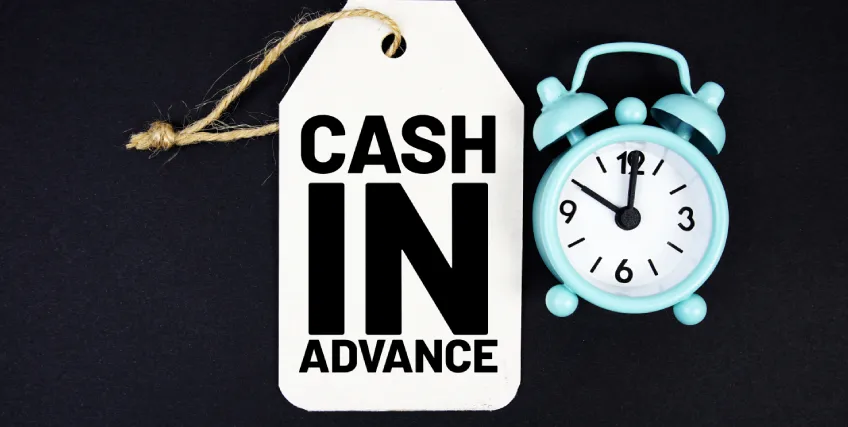5 Tips to Choose a Merchant Cash Advance Company
April 08, 2025 | Last Updated on: April 08, 2025

A merchant cash advance is a type of financing where you can get quick access to working capital. This happens by advancing funds to your business bank account based on your business receivables in exchange for payments later.
Like any alternative financing option, it has both pros and cons that you should carefully consider before making a decision.
Here’s what you need to know about how merchant cash advances work, and how you can make the right choice for your small business.
How To Choose a Merchant Cash Advance Company
If you’ve decided that a merchant cash advance is the best business financing option, the next step is to choose a merchant cash advance company and begin the application process. Here are 3 tips for choosing the right one:
Check your business financials before applying
Like any other small business loan, you will have to go through an application process to determine eligibility. Each lender will look at your credit card sales and other receivables, along with your personal credit score, to ensure you qualify for the advance.
As you go through the underwriting process, you may be asked for your credit history and financial documentation like bank statements,
Compare pricing and fees
When shopping for a merchant cash advance, borrowers should compare all of the fees and rates to get the total cost of the advance.
MCA providers use a factor rate, typically ranging between 1.1 and 1.5, meaning that for every $1,000 advanced, you’ll owe $1,100 to $1,500. Unlike traditional loans or credit cards that charge interest over time, the total cost of the advance is fixed from the start.
With factor rates, a seemingly small difference can make a huge difference in your APR. For example, a merchant cash advance with a 1.2 factor rate and six-month repayment period will have an APR of 40%. What if the factor rate was 1.25, though? The APR would be 50%.
This can be a fast-funding option, but it’s important to consider how quickly you can repay the advance, as a faster repayment period can lead to a much higher effective annual percentage rate (APR).
If the cost of capital is too high or you aren’t able to get the loan amount you need, you may consider a traditional small business loan like a term loan.
Look for a company with solid reviews, and right fit
There are merchant cash advance providers that specialize in helping companies with low business credit, but they may come with higher factor rates. Other MCA companies have more stringent requirements but offer more reasonable factor rates.
Additionally, look for complaints related to hidden fees, unfavorable repayment terms, or poor customer service. You can look on sites like the Better Business Bureau to get started.
As with any transaction in your business or personal life, you can check the reviews to learn about the experiences of others with merchant cash advance companies. You can find a company that is a good fit for your business by seeing if other small business owners with similar businesses have had positive experiences with them.
Final Thoughts
Merchant cash advances (MCA) providers small business with upfront, fast capital (sometimes same-day) to ensure they can continue their operations uninterrupted. As you’re searching for the best merchant cash advance companies, be sure to compare several funding providers to find the right funding option for you. Lastly, check your credit score to be sure you can get the best business funding possible on any short-term loan you choose for your business needs.
FAQs about Best Merchant Cash Advance Providers
Are merchant cash advances a good idea?
Merchant cash advances online can be a quick funding solution for businesses. However, they can come with high fees and short repayment terms, making them an expensive option.
What is the maximum amount for a merchant cash advance?
The maximum is typically a percentage of the business's average monthly revenue, which is typically around 100-150% of monthly sales.
Can I get a merchant cash advance with bad credit?
Yes, you can get a merchant cash advance with bad credit. However, this could result in your advance coming with higher fees.
How does a MCA work?
A merchant cash advance (MCA) works by giving business operators a lump sum into their checking account in exchange for future credit card and debit card sales.
What are the fees and interest rates for merchant cash advances?
Merchant cash advances use factor rates instead of interest rates like a traditional business loan. This means businesses repay 10% to 50% more than the original advance, depending on the business’s cash flow and lending terms.




